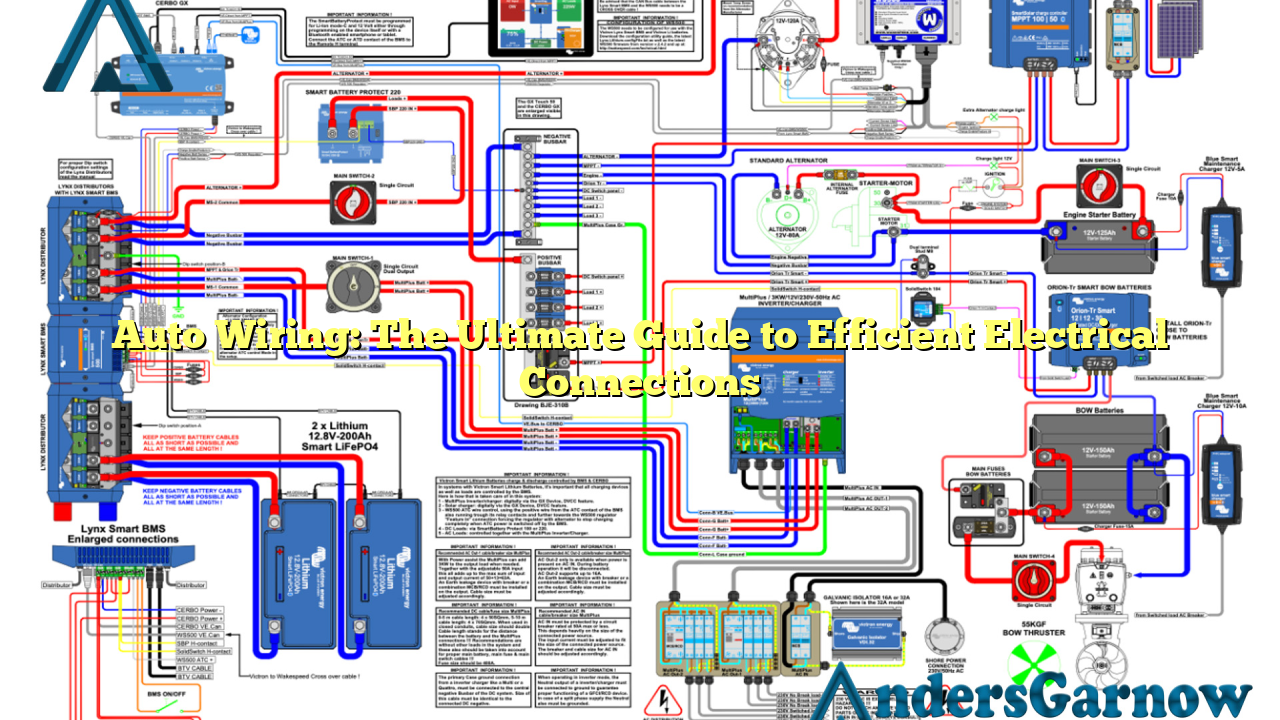Hello and welcome to our comprehensive guide on auto wiring. In this article, we will delve into the world of auto wiring and explore its various aspects, benefits, drawbacks, and alternative options. Whether you are a professional automotive technician, a DIY enthusiast, or simply curious about the topic, we have got you covered. So, let’s get started!
1. What is Auto Wiring?
Auto wiring refers to the process of installing electrical connections in vehicles, primarily automobiles. It involves the use of wires, connectors, and other components to establish proper electrical circuits for various systems in a vehicle, such as ignition, lighting, audio, and more.
2. The Importance of Proper Auto Wiring
Efficient and reliable auto wiring is crucial for the optimal performance of a vehicle. It ensures that electrical currents flow smoothly and without any interruptions, preventing potential issues like short circuits, voltage drops, and electrical failures. Proper auto wiring also promotes safety by minimizing the risk of electrical fires or accidents.
3. Advantages of Auto Wiring
Auto wiring offers several advantages that make it the preferred method for electrical connections in vehicles:
| Advantages | Explanation |
|---|---|
| Efficient Electrical Flow | Auto wiring ensures the smooth flow of electrical currents, minimizing power loss and maximizing performance. |
| Easy Troubleshooting | With properly labeled wires and connectors, diagnosing and fixing electrical issues becomes easier and less time-consuming. |
| Modularity | Auto wiring allows for easy modification and expansion of electrical systems, accommodating the addition of new components or features. |
| Durability | High-quality wiring materials and proper installation techniques ensure long-lasting and reliable electrical connections. |
4. Drawbacks of Auto Wiring
While auto wiring has numerous benefits, it also has a few drawbacks that should be considered:
- Complexity: Auto wiring can be complex, requiring technical knowledge and expertise to ensure proper installation.
- Time-consuming: The process of auto wiring can be time-consuming, especially for intricate electrical systems.
- Cost: High-quality wiring materials and professional installation may come at a higher cost.
5. Alternative Options
For those looking for alternative options to traditional auto wiring, here are a few alternatives to consider:
- Wireless Connectivity: Advancements in wireless technology have led to the development of wireless electrical connections, eliminating the need for physical wires in some applications.
- Bus Systems: Bus systems, such as the Controller Area Network (CAN), offer a centralized approach to electrical connections, reducing the amount of wiring required.
- Modular Wiring Systems: Modular wiring systems utilize pre-built wiring harnesses and connectors, simplifying the installation process and reducing the potential for errors.
6. Auto Wiring: Frequently Asked Questions (FAQ)
Q: Can I perform auto wiring myself, or should I seek professional help?
A: While basic auto wiring tasks can be performed by individuals with some knowledge and experience, complex wiring jobs are best left to professionals to ensure safety and avoid potential issues.
………
In Conclusion
Auto wiring plays a crucial role in the electrical systems of vehicles, providing efficient and reliable connections. Despite its complexities and potential drawbacks, proper auto wiring is essential for optimal vehicle performance and safety. By understanding the fundamentals, advantages, drawbacks, and alternative options of auto wiring, you can make informed decisions when it comes to installing, modifying, or troubleshooting electrical systems in vehicles. Remember to prioritize safety and consult professionals when needed. Happy wiring!

